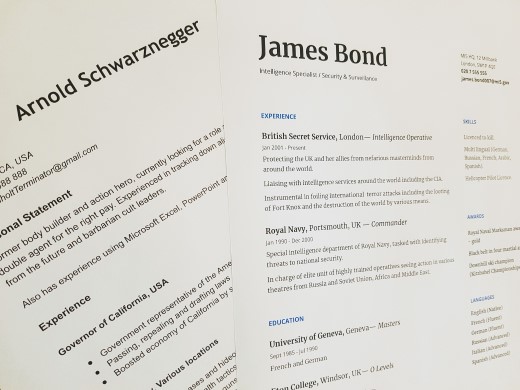The Biggest Mistakes When Writing a Resume

When looking for a new job — a position that many have found themselves in over the past six months — having a compelling resume is a must.
Many people, however, find writing and tailoring their resume a huge challenge and a daunting task, despite an eagerness to get started on the job search and desire to stand out from the crowd. All of us are proud of our hard work, skills and accomplishments, but there’s no uniform way to showcase them in the best light, especially when it’s impossible to anticipate how every hiring manager will react. Recruiters can be a helpful link, as they will have a good idea of companies are looking for and how best to convey what you do, what you want to do next, and what you stand for.
Throughout my career in recruitment, I have seen many mistakes on the resumes of even the most experienced applicants. Here are some of the biggest ones — and how you can avoid them.
Information overload. Understandably, you want to include all your accomplishments. But a hiring manager will have a massive number of resumes to look through and won’t have time to read through several pages, no matter how impressive your achievements are. Lay out your skills and experience concisely. Remember, you will be able to delve into details at the interview stage.
Ensure that the information you share makes sense for the job you are applying for and highlights why you are the best fit for the specific role. One-size-fits-all resumes do not work as well.
Add a personal statement. A personal statement does exactly what it says — it is your chance to introduce yourself to a hiring manager and allow some of your personality to shine through. It enables you to highlight the most relevant parts of your experience, encouraging the manager to continue reading, but it’s also your chance to explain the “why.” What’s your reason for applying, and how would you thrive in the role? A personal statement is a quick way of tailoring your resume to a particular application — without having to change everything else in the document.
Being stuck in the past. A common mistake is positioning your experience to the job you already have rather than the job you want. While it is crucial to offer solid evidence of your education and achievements up to this point (in this role, I did that), it’s also vital to look at the role you hope to take on (if I were here, I would do this). Your resume focus should be the job you are applying for, and it should be compiled on the assumption you will take on the role, listing how your skills and experience will add value.
This is particularly important when seeking to make the jump from manager to director, or director to vice president. How your experience is evaluated will necessarily be different —that is, with less focus on project-specific savings and more emphasis on leadership skills and how you’ve advanced the overall procurement agenda within the business. Your resume should reflect this.
Inability to tell a story. Your resume should act as a storytelling tool, outlining your journey from the beginning of your career to the present day. Hiring managers respond well to a resume that helps them make sense of your decision to apply for the job, and how your previous roles have prepared you for it. Your resume should weave a narrative of your experiences that may not seem obvious from a list of companies and job titles on LinkedIn. Similarly, your resume should offer far more than just a list of your responsibilities. Provide details of some relevant accomplishments, what the challenges were and how your impact was ultimately felt by the business or your suppliers, financial or otherwise.
Bad editing. It seems as though this should go without saying, however, many resumes come across my desk with spelling and grammar issues. Be meticulous when editing a resume, as well as social profiles. Often, applicants are too close to their own resume and don’t notice typos that are obvious to outside eyes. Engage someone to proofread. Furthermore, ensure that responsibilities listed under each role are not carbon-copy repeats. It is not enough to copy and paste information from section to section. A hiring manager wants to see that thought, care and attention to detail has bene brought to each part of your resume.
Ensuring your resume is the best it can be when you apply for your next role doesn’t have to be a daunting task. These measures can help you highlight your fitness for the role you want.



